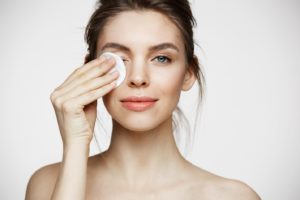
Sleeping in Makeup: Why You Should Stop it and How to Remove Makeup
Does this sound like you? You come home from a long sunny day or a night out dancing and drinking, you get to your room,
Looking for answers about our website, products or services? We are here to help.
For any question, please contact us.
Monday - Thursday: 9 am - 4 pm EST,
Friday: 9 am - 2 pm EST
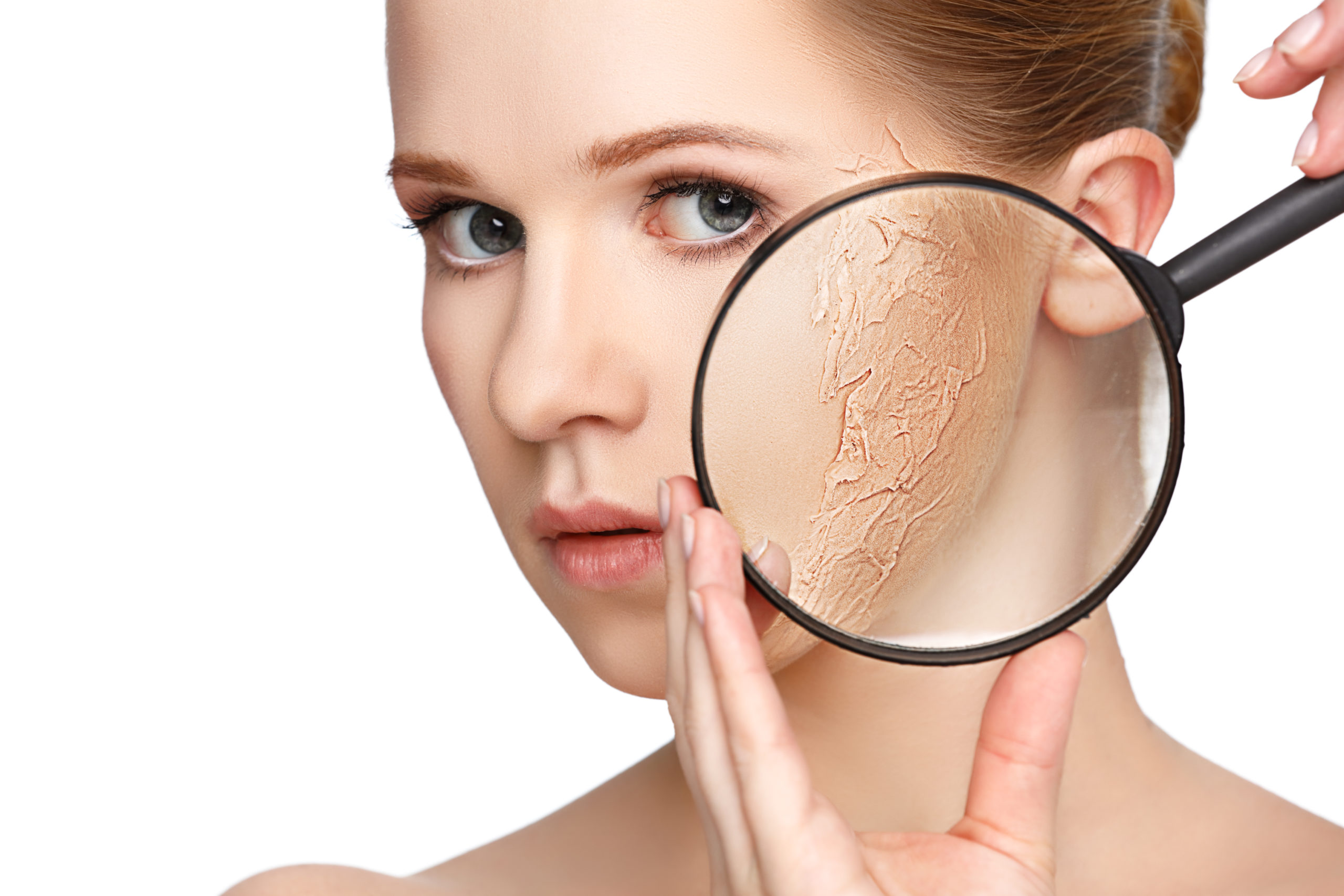
Dry skin and dehydrated skin have a lot in common but are also very different; therefore, taking a minute to play detective on your skin will come in handy before making any changes in your skincare routine. Just because your skin feels taut and somewhat is not a definite indicator that you have dry skin so put away that thick cream because chances are, you are misdiagnosing. Before you put on your detective’s hat, let’s talk a bit about dry skin and its contrast to dehydrated skin.
First, dry skin is a skin type just like oily skin, healthy skin.
Dehydrated skin is a condition that can be experienced by any of the above skin types.
Dry skin is often defined as skin lacking in oil or lipids, while dehydrated skin is a condition where the stratum corneum, which is the top skin layer, lacks water.
Let us dive more in-depth on the details of dry skin and dehydrated.
Dry skin is a skin type characterized by its low sebum production compared to normal or oily skin. It is often referred to as lipid dry. A skin type is something in your genes; you are born with it. It can also, however, be brought about by different factors in the course of your life: age, seasons, health conditions, among others. If you are sure that you do have the dry skin type, it is imperative to look after it using a targeted skincare routine. The routine will help strengthen the natural barrier that is impaired and compensate for the natural moisturizer deficiency.
Dehydrated skin is a condition that can be experienced by all skin types; normal, oily, combination, and even dry skin. It is a temporary skin condition where the top layer of the skin lacks water.
For Example, skin dehydration is common due to the drop in humidity levels, exposure to harsh winds, and too much time spent in artificial heating.
With those definitions laid out, how do you know which one you have? Here’s a breakdown of the critical characteristics of dry skin and dehydrated skin.
Before we get into the features, here is a quick guide on how to do a skin test at the comfort of your home.
Pinch a small portion of your cheek lightly. If it wrinkles in gentle pressure instead of its shape and does not bounce back when you let go, your skin is in desperate need of water.
If still unsure, do consult your dermatologist for a more professional diagnosis.
Signs of dehydration and dry skin are quite similar; however, those of dehydration are temporary. Some of the symptoms of dehydrated skin are;
Even though rain, wind, and cold are often viewed as the major causes of dehydrated skin in matters of weather, UV rays from the sun are the most notorious. The sun can quickly dehydrate the skin, especially if you do not actively use moisturizer and lock it using sunblock. Take a look at our last week’s blog post on how to layer your skincare products for the best results. The UVA rays specifically can deeply penetrate the skin and play a role in premature skin aging.
Hard water is water that contains high dissolved mineral content. Minerals found in hard water include Calcium, Magnesium, and even Limestone. They are not a severe health risk, though. You have probably encountered hard water through clogged pipes or the residue left on dishes and clothes post-wash. When you wash your face using hard water, soap residue is left on the skin. The build-up of this residue will clog your pores, which eventually leads to dehydration of your skin.
Aging is a factor in several skincare issues, including dehydrated skin. As your skin ages, maintaining high moisture levels becomes difficult. The process of aging causes our bodies to dehydrate more. And as the skin becomes more dehydrated, it also looks older.
Air conditioning and indoor heating can cause dehydration on both your face and body. They tend to dry the air around, and that, saps away water out of your skin.
Other factors that cause your skin to get dehydrated include;
As mentioned earlier, dehydrated skin is a condition that any skin type can experience. It is also a temporary condition that can be reversed. Here are a few at-home remedies for dehydrated skin.
This might seem rather obvious, but it is alarming how often we forget to take just a glass of water, let alone the recommended 8. Internal hydration is of utmost importance, so water intake, consumption of water-rich fruits and veggies will go a long way and treating dehydrated skin.
During the winter season, make use of humid environments such as a steamy bathroom. Or get a humidifier for your home or office. This will keep your skin from losing moisture to the air.
To further hydrate your skin, consider adding a serum to your routine. Serums are incredibly concentrated hydrators and nutrients. Apply a serum before any moisturizer; the moisturizer will lock in the beneficial ingredients in the serum.
Select a serum or moisturizer that contains fragmented hyaluronic acid, which is excellent at keeping water in the skin. I’m sure you are wondering what hyaluronic acid is.
Hyaluronic acid is a substance produced naturally by the body, mainly the skin. Its primary function is water retention and keeping your tissues well lubricated and moist. A serum containing this will supplement the naturally produced hyaluronic acid keeping your skin moisture levels high.
There also some lifestyle adjustments that you can make to treat dehydrated skin. Such as:
Ensure to keep up with the treatments suggested, especially oral hydration. Using a hydrating mask at least weekly will also come in handy to replenish the skin’s moisture level.
I hope that you are now well informed on whether you have a dry skin type or just experiencing skin dehydration. Keep checking for the signs mentioned and apply the treatments to keep your skin looking beautiful and healthy-looking.

Does this sound like you? You come home from a long sunny day or a night out dancing and drinking, you get to your room,

The area under your eyes is relatively small, maybe an inch across. When this area is flat and smooth, almost nobody notices, but suddenly everyone

Are you experiencing itchy, dry, and chapped lips? The skin on your lips is thinner and much more delicate than other areas of the body.
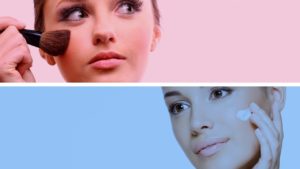
You may already know that sleeping with makeup is a skin care mistake. What you might not realize is the scale of how horrible it
Looking for answers about our website, products or services? We are here to help.
For any question, please contact us.
Monday - Thursday: 9 am - 4 pm EST,
Friday: 9 am - 2 pm EST
PAYMENT | Pay for your order using secure methods

Copyright © 2020 Gold elements, Inc. All rights reserved.
*By signing up, I agree to receive emails from Gold Elements. Click to read our Privacy Policy & Terms and Conditions.
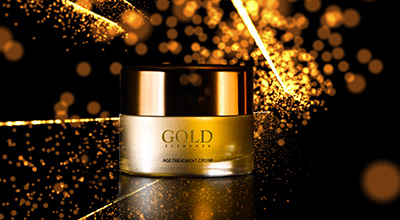
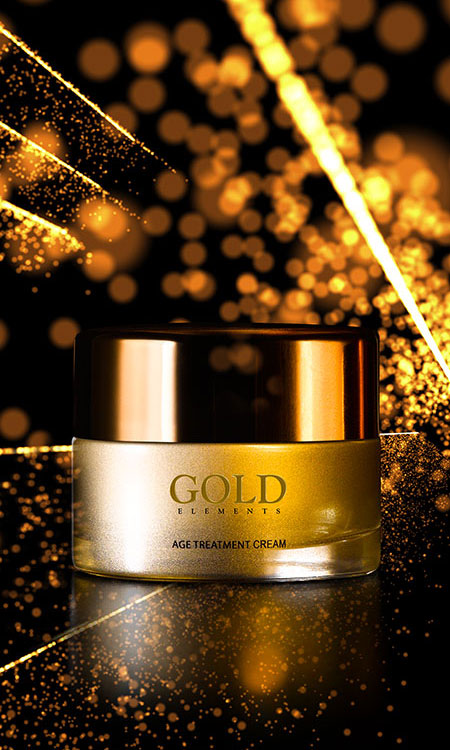
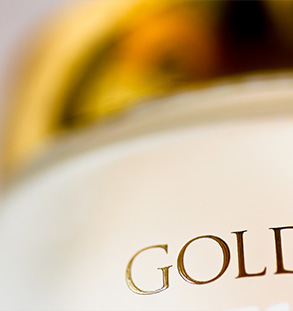




No products were found matching your selection.



